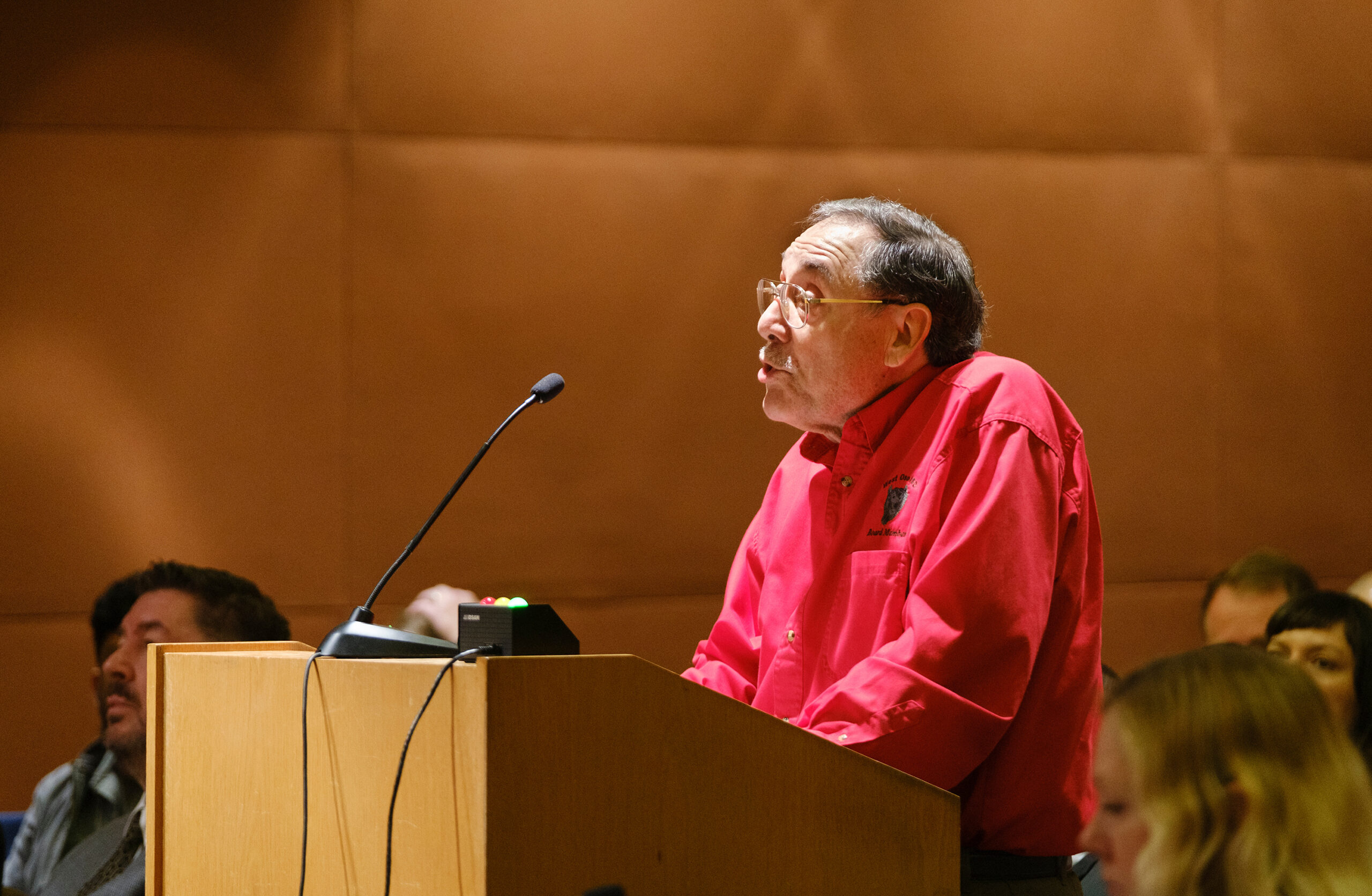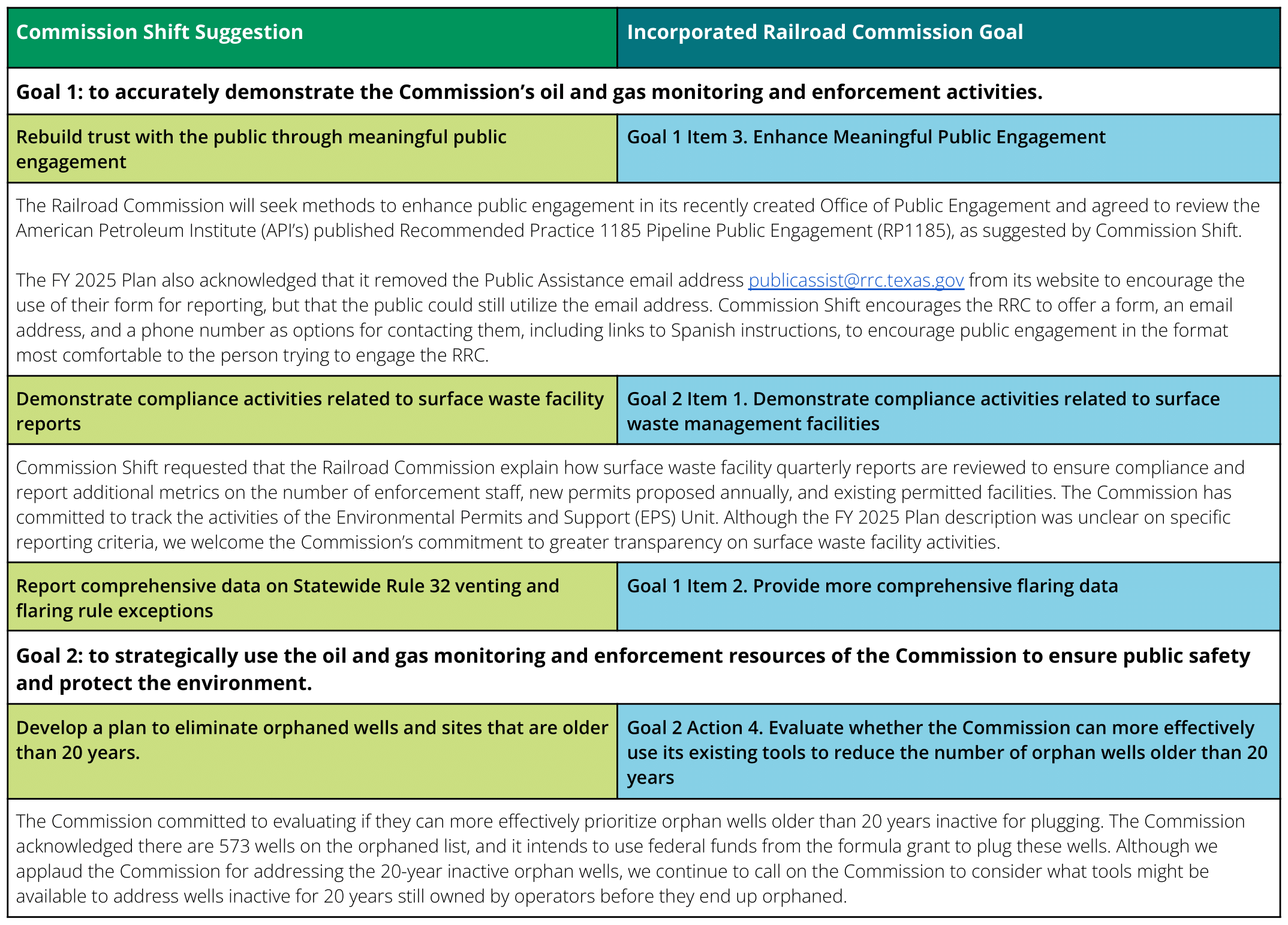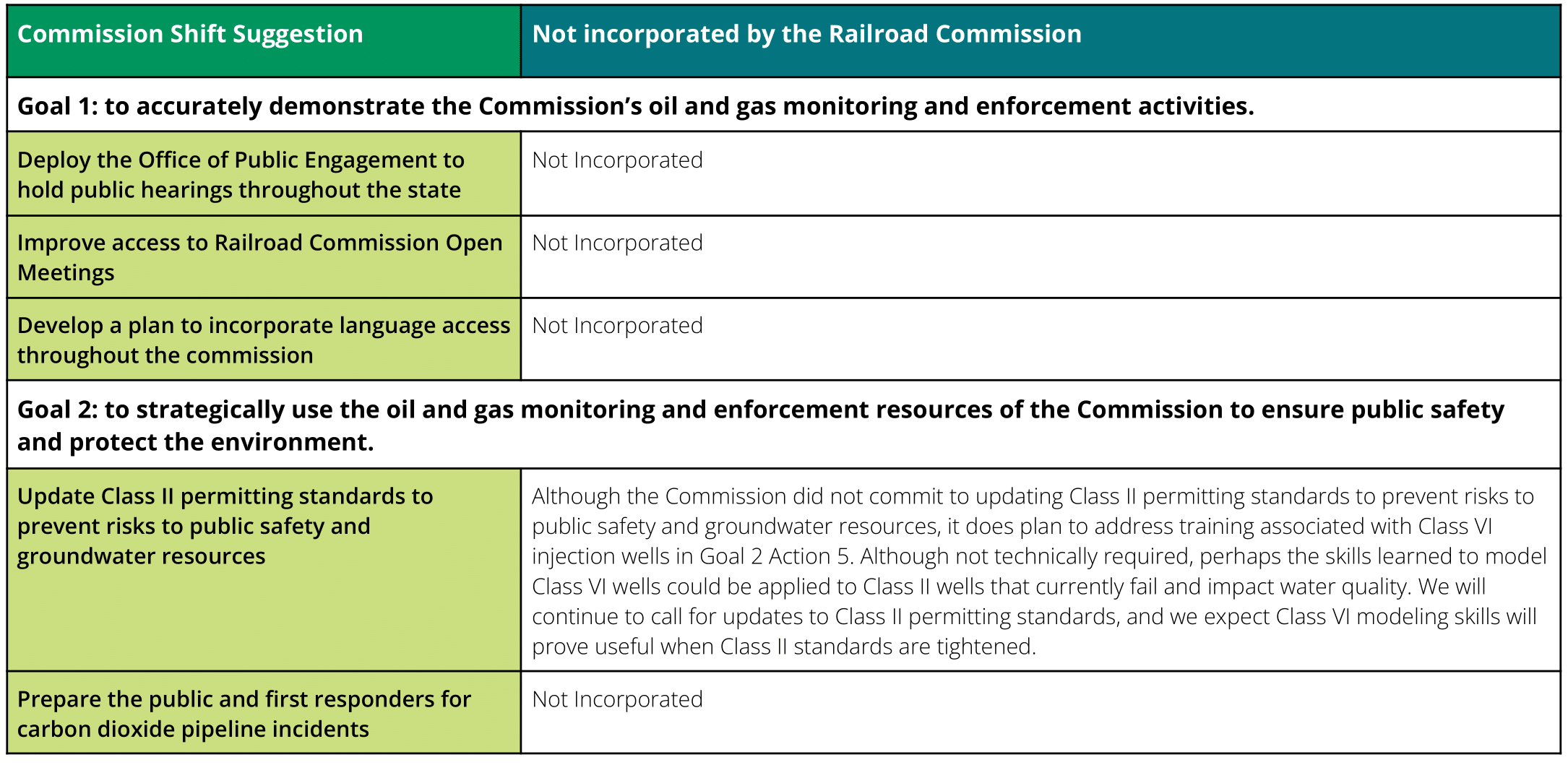Julie RangeJuly 26, 2024
Every year, the Railroad Commission of Texas puts together a Monitoring and Enforcement Plan for the following fiscal year (FY). For the FY 2025 Monitoring & Enforcement Plan, the Railroad Commission decided to collect public comments before putting it together. Commission Shift welcomes this new opportunity to provide feedback prior to publishing the plan. We notice the RRC has not yet published the public comments they received for the FY 2025 plan, but we hope they will do so as they did for public comments on the FY 2024 draft plan.
Update, September 9th: The Railroad Commission has published the public comments on the 2025 plan. You can view them here — zoom in to read each column.

Lucas Jasso delivers testimony at the March 2024 open meeting of the Railroad Commission.
In addition, the FY 2025 plan better articulates the activities of the Administrative Compliance and Technical Permitting Sections, something we’ve pointed out as lacking in the past. In future reports, we hope they expand the discussion to provide more information, metrics, and data on these activities.
Another change in this year’s plan is that data is now reported on a well level and no longer on a lease level. This is a welcome change that makes the reported data more meaningful and less confusing for anyone unsure what exactly is included in lease violation counts.
Future Monitoring and Enforcement plans could expand on how RRC staff enforce rules — like Statewide Rule 15 — for compliance relating to inactive wells, or other Statewide rules prior to issuing drilling permits. Additionally, we hope the data section is expanded to include compliance metrics around approvals, flags, and denials for common RRC permitting processes such as Form P-5 Organization Reports; Form W-1 approvals to drill or re-enter wells; Forms G-1 and W-2 completion reports; and Form W-3 and other metrics the Administrative Compliance and Technical Permitting Sections process.
But getting back to the positives, we are happy to report several of our public comment requests have been incorporated into the FY 2025 Plan. The table below provides a shortened description of our requests and how they were incorporated. Our full public comments and recommendations for the FY 2025 Monitoring and Enforcement Plan can be found here.

Several of our suggestions were not addressed, and we will continue to encourage the Commission to incorporate them.

Commission Shift’s additional observations and questions on the FY 2025 Monitoring & Enforcement Plan follow:
We will continue to monitor how the RRC implements the Monitoring and Enforcement Plan and call for concrete improvements to ensure that our impacted communities are seeing the changes they deserve. You can join us by attending “Community Connect: Shifting the Commission,” an ongoing series of meetings where community members from across the state gather to take action to reform the Railroad Commission. RSVP today!